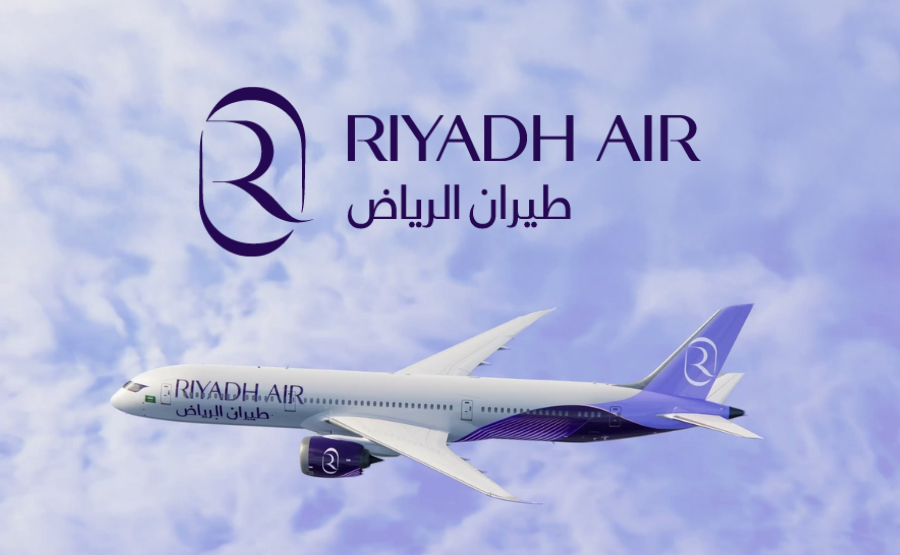Riyadh Air is Saudi Arabia’s new national carrier, set to launch operations in 2025 with a bold ambition: to become one of the world’s most digitally advanced airlines. Backed by the Kingdom’s broader Vision 2030 agenda, the airline is positioned to do more than move people from one destination to another—it seeks to reimagine travel as a fully connected, guest-centric experience. With a business model that spans aviation, retail, hospitality, and destination services, Riyadh Air is shaping itself into an end-to-end journey orchestrator—combining the roles of airline, travel agency, DMC, and retailer under one unified brand.
Central to this vision is a deep commitment to digital transformation. By embedding AI across every step of the guest journey and every layer of the operation—from route performance and crew development to hyper-personalized service delivery—the airline is setting a new benchmark for how technology can elevate travel in the Kingdom and beyond.
To support this bold ambition, Riyadh Air engaged Artefact as its strategic AI partner—tasked with designing the digital and data foundation, enabling enterprise-wide intelligence, and helping translate vision into scalable action.
Building the brain: A future-ready AI strategy
Bringing Riyadh Air’s intelligence-first vision to life required a clear, scalable AI strategy—one that embedded smart decision-making across every part of the airline. Working hand-in-hand with Riyadh Air, Artefact’s team co-developed a strategic blueprint that aligned AI initiatives with core business goals: enhancing guest experience, optimizing operations, maximizing revenue potential, and empowering employees across functions. This strategy served not only as a guide for immediate priorities, but also as a foundation for long-term, enterprise-wide AI adoption.
At the heart of the blueprint was the concept of agentic AI—a system of specialized AI agents designed to support distinct business functions. These included agents for business intelligence and performance, guest service automation, dynamic pricing, content creation, crew planning, and real-time disruption management. Supporting this ecosystem was a centralized AI orchestrator—a framework designed to receive user or system requests, route them to the right agents, assess the responses, and deliver accurate, context-aware outputs. The orchestrator was envisioned to serve both employees and guests, connecting seamlessly with operational systems and customer-facing channels.
To ensure the strategy could be executed in a phased and focused manner, over 50 high-impact use cases were jointly identified and prioritized across key domains such as commercial, flight operations, guest experience, loyalty, and maintenance. These included initiatives like predictive maintenance, guest lifetime value modeling, flight delay and baggage loss prediction, and abandoned cart retargeting—each chosen for its potential to deliver tangible business value and support Riyadh Air’s ambition to lead through intelligent innovation.
Creating the digital foudation: Data platform and golden guest records.
A digital-native airline requires a digital-native backbone—and for Riyadh Air, that meant building a unified, AI-ready data platform from the ground up. In close partnership with the Enterprise Architecture team of Riyadh Air, we developed a modular, cloud-native architecture designed to support real-time analytics, scalable AI applications, and seamless integration across systems.
In the initial phase, over 20 data sources—including bookings, CRM, commercial systems, marketing platforms, loyalty activity, and web behavior—were integrated into a single, unified platform. This broke down silos and enabled both a consistent view of each guest and the activation of high-impact BI use cases across departments—from commercial performance to marketing performance and guest behavior analytics.
Leveraging the advanced Master Data Management (MDM) capabilities of Informatica, we created Golden Guest Records: a complete, accurate, and continuously updated 360-degree view of each traveler. This foundation allowed Riyadh Air to power everything from hyper-personalized marketing to smooth, contextual check-in experiences.
A future-proof, modular architecture was designed to give Riyadh Air the flexibility to plug in and experiment with different AI technologies—from open-source LLMs to proprietary, task-specific models. This modularity ensures the airline can evolve its AI capabilities without having to re-architect the system with every new advancement.
Once the Golden Guest Records were established, we ensured they could be accessed by all enterprise systems—so that every touchpoint, whether physical or digital, would reflect the same guest understanding. With this solid data foundation, Riyadh Air was ready to turn intelligence into real impact.
Turning intelligence into impact: AI and BI in action across the airline.
With a solid AI strategy and data foundation in place, Riyadh Air began activating high-impact use cases across key functions—starting with GenAI and predictive analytics. These early applications were not just proofs of concept; they were designed to deliver tangible business value and empower teams with scalable, intelligent tools.
One such example was the AI Policy Generator, built to streamline the time-consuming process of drafting internal policies. Traditionally, benchmarking policies across top airlines, ensuring alignment with global standards, and maintaining tone consistency took weeks. Together with Riyadh Air, we developed a model that automated this process—benchmarking against industry leaders, surfacing differentiators, and ensuring compliance with local and international regulations. As a result, policy creation time dropped from two weeks to just 15 minutes for a first draft, accelerating workflows while improving consistency and quality.
Another transformative use case was the Marketing Content Generator. Teams across marketing, loyalty, commercial, and guest experience needed to produce high volumes of content—yet ensuring brand tone, message consistency, and relevance across channels was a major challenge. To solve this, we helped build an intuitive, GenAI-powered content platform tailored to Riyadh Air’s guidelines. Designed for everyday users, the tool significantly reduced back-and-forth on content reviews and improved productivity by 3X across multiple business functions.
To inform guest experience strategy, the Guest Experience Monitor was developed—an external-facing model that scraped thousands of reviews from platforms like TripAdvisor and Skytrax. By running sentiment analysis for different airline reviews across different touchpoints, the tool helped Riyadh Air identify both areas of improvement and opportunities for differentiation, offering strategic input for product and service teams.
On the organizational level, the Digital Boardroom use case tackled the complexity of tracking over 25 management KPIs across functions like Commercial, HR, Finance, and Marketing. Where data was once collected manually over weeks, an automated pipeline was introduced to compute KPI progress in real time, removing human error and improving visibility for board-level decision-making. Executives now access both high-level and drill-down views of business performance, enabling more responsive governance.
Together, these use cases represent just the beginning. Over 15 AI and BI applications have already been delivered, with more than 20 in the pipeline—each aligned to Riyadh Air’s broader mission of scaling intelligence across every layer of the business.
Putting trust first: Guest data protection by design
As Riyadh Air’s intelligence capabilities expanded, so did its responsibility to protect the data at the core of every guest interaction. From the outset, privacy wasn’t treated as a checkbox—it was embedded as a foundational principle. In collaboration with Riyadh Air, we developed a comprehensive Guest Data Protection Framework designed to scale with the airline’s growth while meeting the complex compliance needs of a global, multi-industry operation.
This framework was built to reflect the regulatory diversity of Riyadh Air’s source markets, including GDPR (EU), CCPA (US), PIPL (China), India’s data privacy framework, PDPL (KSA), and broader Middle Eastern standards. But the approach went beyond minimum legal requirements. Drawing from best practices across aviation, retail, and tourism, we helped Riyadh Air create controls and policies that put the brand ahead of the curve—on both compliance and guest expectations.
To support smarter governance, we also leveraged generative AI to analyze and compare regulatory obligations across jurisdictions. This allowed Riyadh Air to identify overlaps, contradictions, and optimization opportunities, informing smarter, risk-aware decisions around data retention, usage, and guest consent.
The outcome is a privacy-by-design model that instills trust across every stakeholder—from regulators and partners to employees and guests. With safeguards built directly into its systems and strategies, Riyadh Air is well-positioned to lead the travel sector in ethical and forward-thinking data stewardship.
Conclusion: A new global standard for a digitally native, guest-centric carrier
Riyadh Air’s vision goes far beyond launching a new airline—it’s about setting a new global standard for what a digitally native, guest-centric carrier can be. From building a scalable AI and data foundation to launching intelligent use cases and embedding trust into every system, this transformation is already reshaping how the business operates and how guests will experience travel.
Artefact is proud to support Riyadh Air as its strategic AI partner—helping co-create the architecture, strategy, and solutions that power this next-generation airline. As the journey continues, our shared focus remains clear: to scale intelligence across the enterprise, deliver meaningful impact in every function, and set a new benchmark for the future of travel.

 CLIENT CASES
CLIENT CASES




